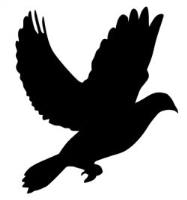 Add My Company
Add My Company
Sign In
How to Get Rid of Pigeons
03-02-2022

Pigeons can present a number of problems and hazards, especially when they congregate in large numbers. Their droppings are not only unsightly, they are also dangerous and corrosive. In this post we look at practical steps that can be taken to get rid of problematic pigeons.
Pigeon Pest Control and the Law
Before considering various techniques to eradicate the presence of pigeons its important to be aware of the UK law regarding wild birds. This is legislated by the Department of Environment, Food and Rural Affairs (DEFRA) and detailed in the Wildlife and Countryside Act 1981 (Chapter 69).
This states that wild birds, along with their nests and eggs, are protected by UK law making it illegal to destroy or interfere with them, except under licence. If a licence is obtained, non-lethal methods of pigeon pest control should always be considered first as lethal methods have been found to be totally ineffective. Killing off existing pest pigeons simply reduces the competition for food and shelter prompting the remaining pigeons to increase their breeding rates to compensate.
People troubled by pigeons building nests and laying eggs often ask: How can I remove a pigeon’s nest? While the humane solution may appear to be relocating the nest to a more suitable location, the nest and eggs are protected by the Wildlife and Countryside Act from 1981, so moving them is against the law.
What is a Feral Pigeon?
Feral pigeons are all descended from domestic pigeons which were originally bred from rock doves whose natural habitat is seaside cliffs and mountains. Rock doves, domestic pigeons and feral pigeons are all the same species.
People often want to know if Feral Pigeons and Wood Pigeons are the same. Wood pigeons are the largest amongst the pigeon family. They are fatter than feral pigeons and prefer a diet of leaves, berries and fruits. They also prefer to construct their nests in quiet woodland and park areas and therefore don`t tend to become pests.
Where do Pigeons Nest?
Feral pigeons have readily adapted their nesting habits from the seaside cliffs and mountains, preferred by rock doves, to our urban environments. The birds will roost and nest on almost any horizontal surface that provides a small amount of shelter. Ledges, balconies, rooftops and empty buildings are all typical nesting sites.
Feral pigeons tend to build their flimsy platform nests from twigs but will also use whatever is available, such as rubbish and pieces of plastic. Peak breeding season is between March and July but nest building will often begin in February.
How Many Eggs Does a Pigeon Lay?
Its interesting to note that pigeons are monogamous and will mate for life. Female pigeons reach sexual maturity after just 7 months and 8 to 12 days after mating will lay between 1 and 3 eggs, typically 2. The eggs are incubated for around 19 days and the hatched pigeon chicks (squabs) are fledged and leave the nest after around 30 to 37 days.
Pigeons can breed at any time of year but peak reproduction takes place in the spring and autumn.
How Long Does a Pigeon Live For?
In captivity pigeons have been known to live as long as 15 years. But in urban environments a pigeon lifespan of around 2 to 3 years is more common.
Do Pigeons Carry Diseases?
People often want to know, are pigeons dirty and do they carry disease? Pigeons can carry a range of diseases that include salmonellosis, tuberculosis and ornithosis which can potentially infect humans. In fact pigeons are known to carry in excess of 60 pathogens which is common in wild birds.
Dead pigeon caracasses, pigeon droppings and nesting materials can also contain a variety of mites and insects which may cause disease, skin irritation and allergic reactions.
Does Pigeon Poop Damage Buildings?
Pigeon droppings are not only unsightly, dangerously slippery and infectious they can also damage buildings. The acid content in pigeon droppings can lead to the deterioration of soft stone, causing long term damage. Accumulated pigeon droppings can be difficult and expensive to remove without causing further damage.
Pigeon Control Methods
It should be noted that one of the most effective ways to restrict the size of pigeon flocks in any location is to control the availability of food. Limited food supply will reduce the number of new birds arriving at a site and suppress breeding.
As noted, under UK law, shooting pigeons isn’t allowed without a licence. Similarly, baiting and poisoning pest pigeons isn’t allowed and can present risks for other animals. Trapping problem pigeons is another tactic that might be considered but is recognised as ineffective and expensive and should only ever be carried out by professionals.
effective pigeon deterrent products
Highly Effective Pigeon Deterrent Products
What is the Best Pigeon Deterrent?
To avoid the health risks associated with pigeons along with the mess and potential property damage they cause we often need to discourage and prevent them from from roosting or nesting on or around our homes and property. Legal restrictions mean that only humane, harmless techniques can be employed, so what are the best available pigeon deterrents?
What Do Pigeons Hate?
As noted, pigeons avoid areas where there is poor food supply so this needs to be considered. They also dislike the presence of birds of prey and they don’t like strong aromas such as cinnamon or hot pepper. And like all birds, pigeons are sensitive to fire and can see the ultraviolet light emitted by burning materials which they will naturally avoid.
Minimising the availability of food combined with spraying areas with strong smells can be an effective deterrent tactic.
Pigeon Repellent Gel
Pigeon repellent gel is also known as Bird Free Fire Gel and Bird Free Optical Gel. Its an extensively proven material that prevents all birds, including pigeons, from nesting and roosting where they are not welcome.
bird free fire gel
Pre-loaded Dishes of Bird Free Fire Gel for Easy Installation
The gel is formulated from natural oils and food grade ingredients which, in combination, emit UV light that looks like a naked flame to birds. Locating small containers of this exceptional material in areas where pigeons like to land and roost has an immediate effect. Birds see the gel as a naked flame and their natural instinct is to keep away. In addition, the gel is formulated with a mild peppermint and black pepper aroma which acts as a further deterrent.
Bird Free Fire Gel is available in convenient preloaded dishes along with fixings to securely attach the dishes to pipes, railings and other perches favoured by pigeons.
Anti Bird Netting
Anti-bird netting is also known as pigeon netting, bird control netting or simply bird netting. Netting provides a highly effective anti-bird barrier but is often considered unsightly. Its commonly used to protect:
Fruit trees and bushes
Balconies
Outdoor eating areas
Courtyards
Patios
Signage
Car parking areas
Bird Deterrent Pigeon Wire
Parallel wire bird-deterrent systems provide an alternative to bird netting. Lengths of parallel steel wires are installed in areas to which pigeons are naturally attracted, such as rooftops, balconies and eves. Pigeons will seek alternative areas to roost and build their nests when they encounter these wires.
Anti Bird Spikes
anti bird spikes gutter clips
Pigeon Spikes with Gutter Clips for Easy Installation
Anti bird spikes are a well known, highly effective anti bird device. They are simply strips of harmless spikes mounted in areas where pest pigeons like to land. When they encounter the spikes, they steer clear.
Anti pigeon spikes are made from lightweight polycarbonate while anti-seagull spikes are made from tougher stainless steel that can withstand seagull beaks. Gutter fixing clips make it quick and easy to install these effective pigeon deterrent spikes where pigeons like to perch.
Birds of Prey and Decoys
As previously noted, pigeons don’t like dominant birds of prey and will avoid their territories. Using birds of prey for pest control is marketed as a green, natural and humane tactic as it is considered to be non-lethal. But since raptors cannot be trained not kill the target species and the majority of raptors used for pigeon control are not their natural predators this technique shouldn’t really be considered as ‘natural’. Another important consideration when using birds of prey to dispel problematic pigeons is that it`s generally employed for short term bird clearance, for example at football grounds and sports arenas.
A genuinely safe, humane alternative is to use replica raptors. Replicas of hawks, falcons, owls and other birds of prey have long been used as bird repellents in a variety of situations.
How to Get Rid of Pigeons from Your Roof
If you are troubled by pigeons congregating on a rooftop a variety of techniques can be used to keep them away. As noted, if the birds have created nests and laid eggs you will need to wait until the chicks have fledged before taking steps to keep the pest pigeons away.
Containers filled with pigeon repellent fire gel distributed around the rooftop areas favoured by the birds has been found to be highly effective and easy to install.
Anti bird netting covering the whole rooftop area is highly effective but can be tricky to install and must be maintained. Similarly, parallel anti bird wires can be effective along ledges, guttering and rooftop edges. And anti-bird spikes work well when mounted along favoured perch areas.
How to Get Rid of Pigeons from Your Balcony
People like to make the most of their balconies, especially in the warmer months. But pest pigeons can turn balconies into dangerous health hazards.
One of the most effective techniques to protect a balcony from pest birds is to shroud the whole balcony in anti bird netting. But obviously many people will consider this tactic to be unsightly, especially during the warmer months when they want to use their balconies. The deployment of bird repellent fire gel in small dishes, distributed along the balcony rail and wherever birds are inclined to land, has been found to be highly effective in keeping balconies free from pest pigeons.
How to Get Rid of Pigeons Under Solar Panels
More and more homes are installing solar power with rooftop mounted solar panels. These installations naturally attract the attention of pest pigeons who are seeking safe locations to build their nests and raise their young.
Bird Free Fire gel has been successfully deployed around many solar panel installations, effectively preventing problem pigeons from establishing their nests.
If you have any questions about dealing with pest pigeons or if you have any special requirements remember that we are here to help. Give us a call on 01273 475500 and we’ll provide you with free, expert advice.
For more information on How to Get Rid of Pigeons talk to Insight Security
Enquire Now
List your company on FindTheNeedle.

